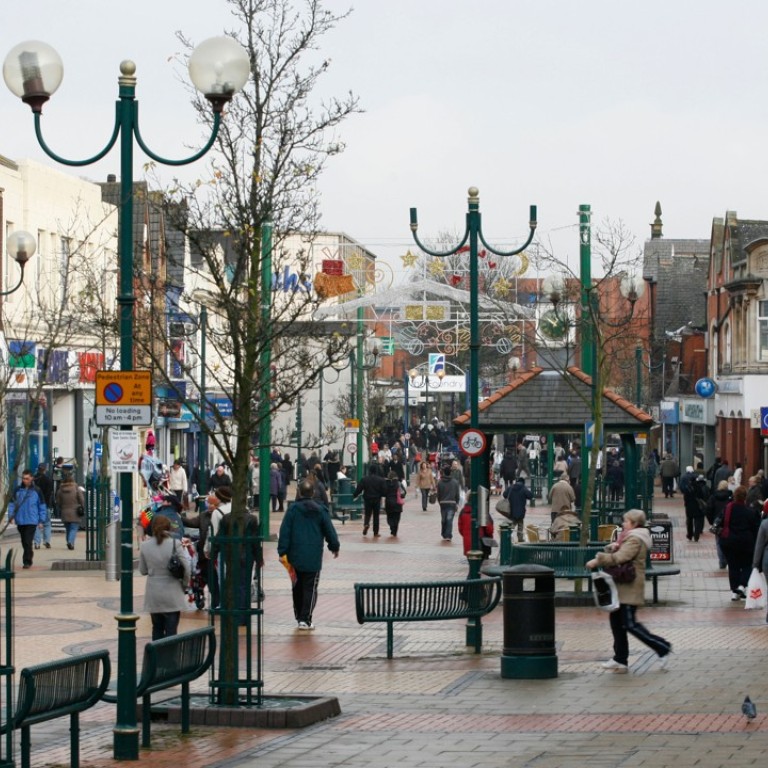
Retail dilemma: accelerated high street store closures in UK gives rise to fears about future role of town centres
- Closures rose nearly 17 per cent to 24,205 across 3,000 towns, cities, retail parks and shopping centres in first half of 2018
- The data reflects a crisis on the high street that has cost tens of thousands of jobs in the UK
British retailers have called for “decisive action” from the government to support the battered high streets after new data showed the number of shops, pubs and restaurants lying empty has soared by more than 4,400 in the first six months of this year.
Closures increased by nearly 17 per cent to 24,205 across 3,000 towns, cities, retail parks and shopping centres monitored by the Local Data Company. The number of new openings of shops, restaurants, pubs and other leisure destinations declined by 2.1 per cent to 19,803 over the half year – leaving 4,402 more gaps on the high street. That total is more than double the number ever previously recorded over the first six months of a year since LDC began its research five years ago.
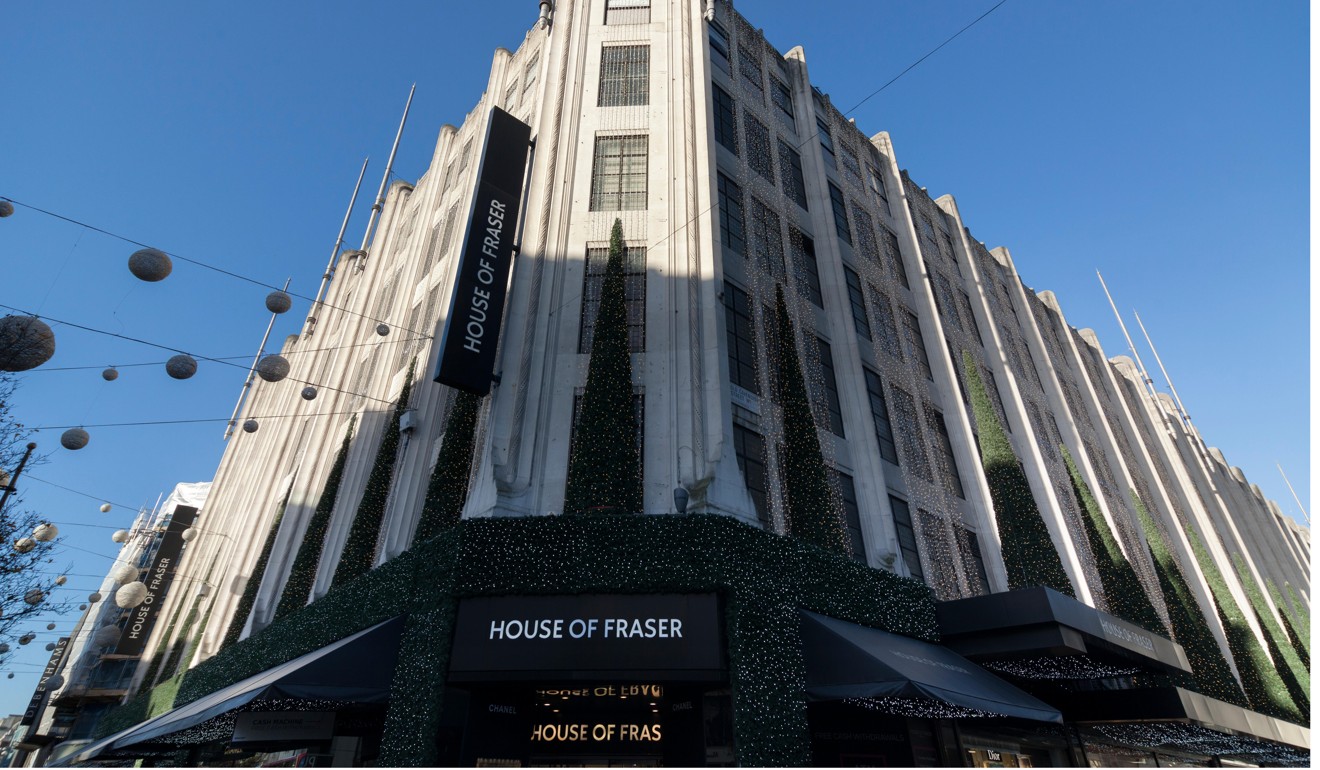
Pubs were among the hardest hit, with a 6.5 per cent decline in numbers over the six-month period as people drink more at home and young people consume less alcohol, while running costs rise. Retailers experiencing the biggest losses were electrical goods stores, fashion shops and news agents. Property agents also suffered heavy closures.
The data reflects a crisis on the high street that has cost tens of thousands of jobs. Major chains including House of Fraser, Evans Cycles, Maplin and Poundworld have collapsed into administration this year while many others, including New Look, Carpetright, Mothercare and Homebase have all been forced to seek legal agreements with their landlords to shut stores and slash their rent bills.
High profile restaurant groups including Gourmet Burger Kitchen and rival burger chain Byron as well as Jamie’s Italian, Carluccio’s, and the Prezzo Group have also been forced to close large numbers of outlets as a result of rising costs, slowing spending and a rapid change in consumer habits.
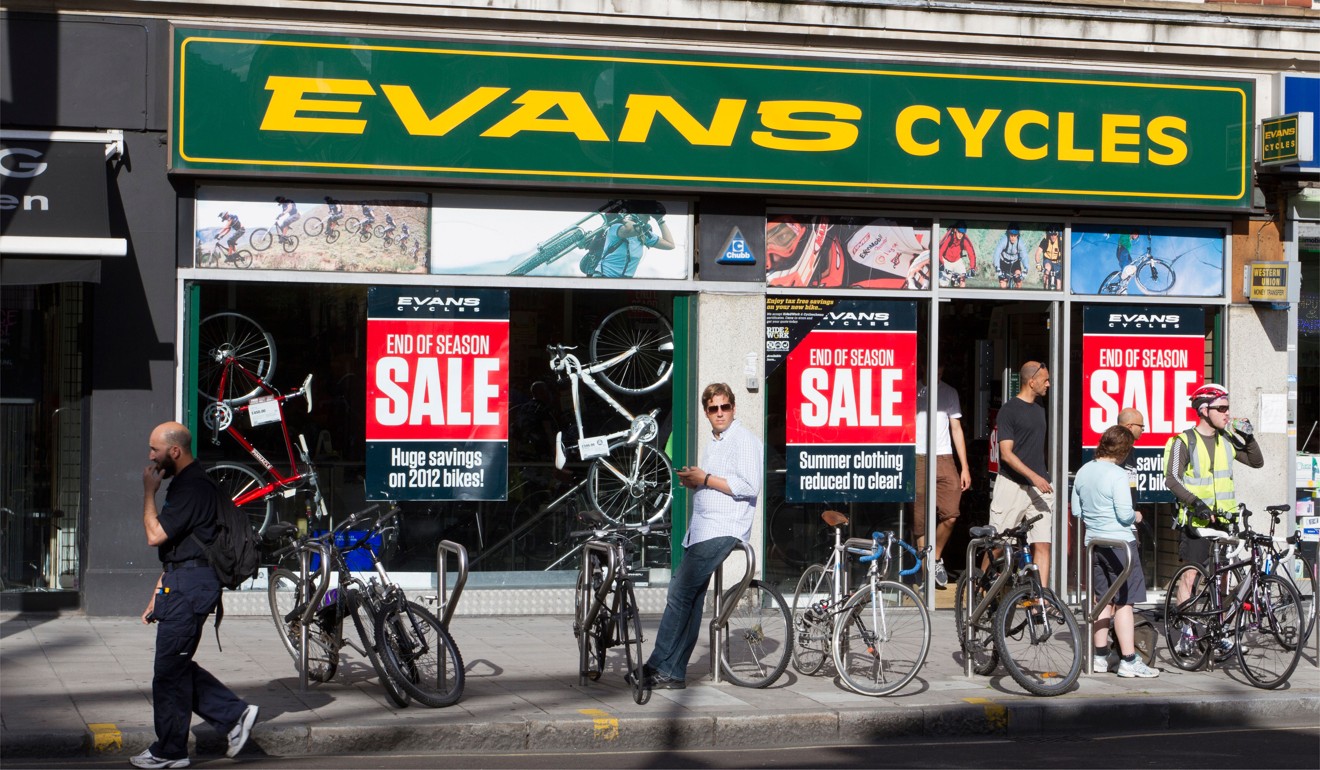
The switch to online shopping, combined with a slowdown in spending and rising costs from business rates and wages has battered the profit margins of many retailers. There is also a major shift under way in how consumers spend their leisure time – as consumers opt to spend more of their spare cash on holidays and experiences rather than in shopping malls, and dine and drink at home.
The number of shoppers on the high streets and in retail parks is in decline and the rapid increase in the number of empty shops has prompted fears about the future role of town centres and what can be done to make use of retail property that may never again be wanted by retail and leisure businesses.
The LDC report comes as data published on Friday shows the UK high street suffering its ninth negative month in a row for in-store sales. Sales fell by 2 per cent year on year in October to mark 13 months since in-store growth exceeded 1 per cent, according to the BDO High Street Sales Tracker.
October should mark the start of the “golden quarter” for retailers, as shoppers start to prepare for Christmas. But Sophie Michael, head of retail and wholesale at BDO, said the second poor October in a row was a “real worry” for stores.
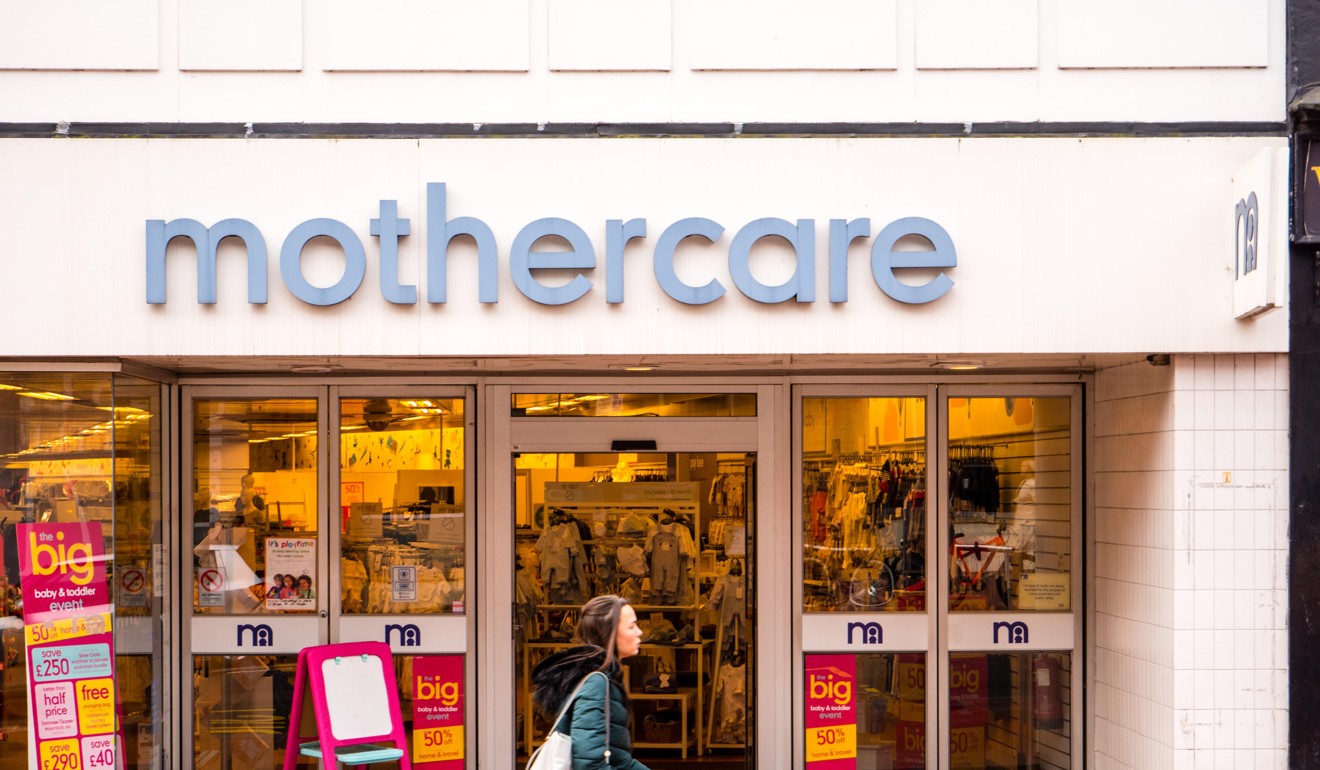
Tom Ironside, director of business and regulation at the British Retail Consortium, said retailers’ profit margins were being squeezed by rising business rates and increased import costs. At the same time shoppers’ ability to spend had been limited by a lack of real wage growth over the last decade.
“The pressure on retailers, which is contributing to store closures, will continue unless the government takes decisive action,” Ironside said.
He has also called on the government “to address spiralling business rates for the larger businesses that employ most the UK’s 3.1 million retail workers”.
Clothing is where the shift to online is happening fastest. Over £7 billion of sales have moved online in clothing and footwear in the last five years. That dwarves any other sector
There are some stores still thriving, led by barbers and beauty salons – whose services cannot be replicated online. Between January and June the number of barber shops rose by 349 while an additional 160 beauty salons, 122 shoe repairers and 50 health clubs opened their doors. There were also 94 new vaping stores and 52 new independent coffee shops.
Larger retail groups – with multiple outlets – are in retreat. Some 2,692 stores closed down in the first six months of 2018, according to LDC research carried out for advisory firm PwC (PwC).
In the same period the number of new stores opened by big retailers slumped by a third on 2017 levels to just 1,569. The net loss of chain store shops was therefore 1,123 – compared with just 222 in the same period a year earlier.
Scunthorpe, Whitley Bay and Darlington were among the worst hit towns across the UK, alongside Tamworth in the Midlands.
“The continued rate of store closures reflects the new reality that many of us prefer to shop online and increasingly eat, drink and entertain at home,” said Lisa Hooker at PwC. “The high street is adapting to an overcapacity in retail and leisure space resulting from these channel shifts. Openings simply aren’t replacing the closures at a fast enough rate.
“Looking ahead, the turmoil facing the sector is unlikely to abate. Store closures already announced in the second half of the year due to administrations and [company restructures] will further intensify the situation.”
Pubs were particularly badly hit by recent rises in business rates while more drinkers are choosing to buy discount alcohol from supermarkets and stay at home as a way to save money.
Brigid Simmonds, chief executive of the British Beer & Pub Association, said: “Despite the positive measures announced in the budget, one in £3 (US$3.8) spent in the pub still goes to the taxman and pubs pay, per pound of turnover, more in business rates than any other sector.”
Fashion retailers were also among the hardest hit with more than 300 stores left empty as New Look, Marks & Spencer, Next and Philip Green’s Arcadia group, which owns Topshop and Miss Selfridge, all closed stores. Nearly a quarter of all fashion spending is now online.
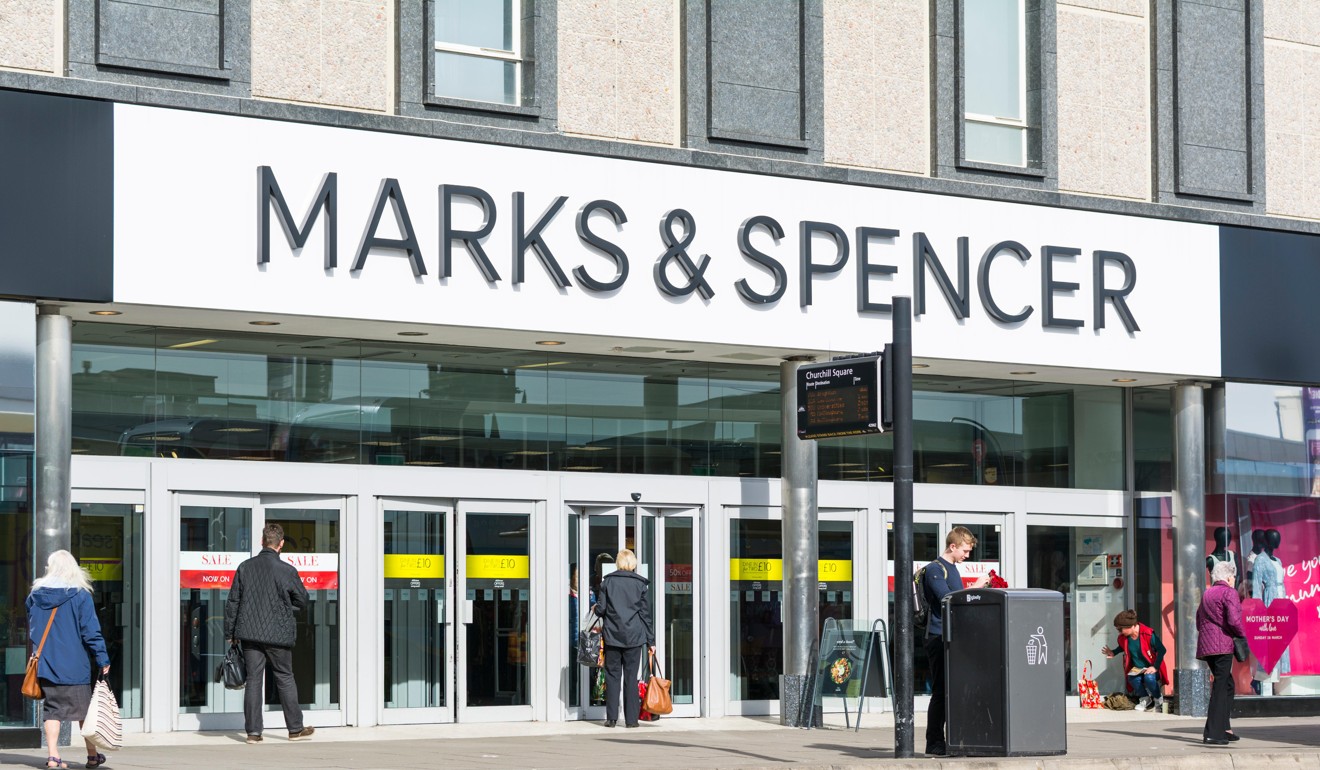
“Clothing is where the shift to online is happening fastest,” said Patrick O’Brien, a retail analyst at GlobalData. “Over £7 billion of sales have moved online in clothing and footwear in the last five years. That dwarves any other sector.”
O’Brien added that many more fashion stores were likely to close in coming years as the total number of outlets now on high streets was “completely unsustainable”.
“We are not expecting the clothing market to return to high levels of growth in physical stores,” he said. “The overall market is expected to grow 1.5 per cent this year, which is all inflation. People are not buying more clothing. The large chains have got a long way to go in closing stores.”
Zelf Hussain, a partner at PwC, said the UK should be braced for more high street closures in coming months as the effect of planned closures by troubled companies such as Gourmet Burger Kitchen and Evans, are implemented. He predicted more companies would announce cuts once they have banked Christmas takings.
In last month’s budget the chancellor Philip Hammond offered business rates relief for small retailers and a planning consultation that could make it easier for some of the UK’s 50,000 empty shops to be converted into homes or other uses.

